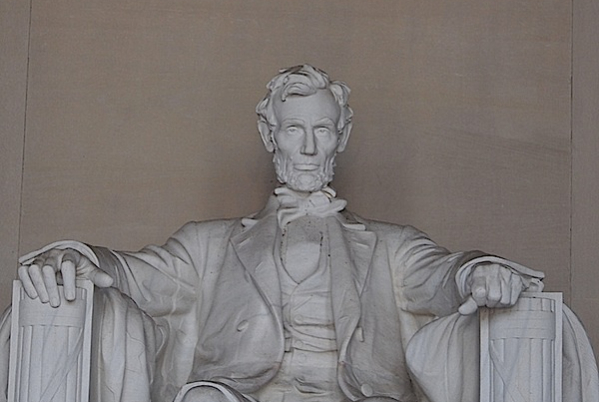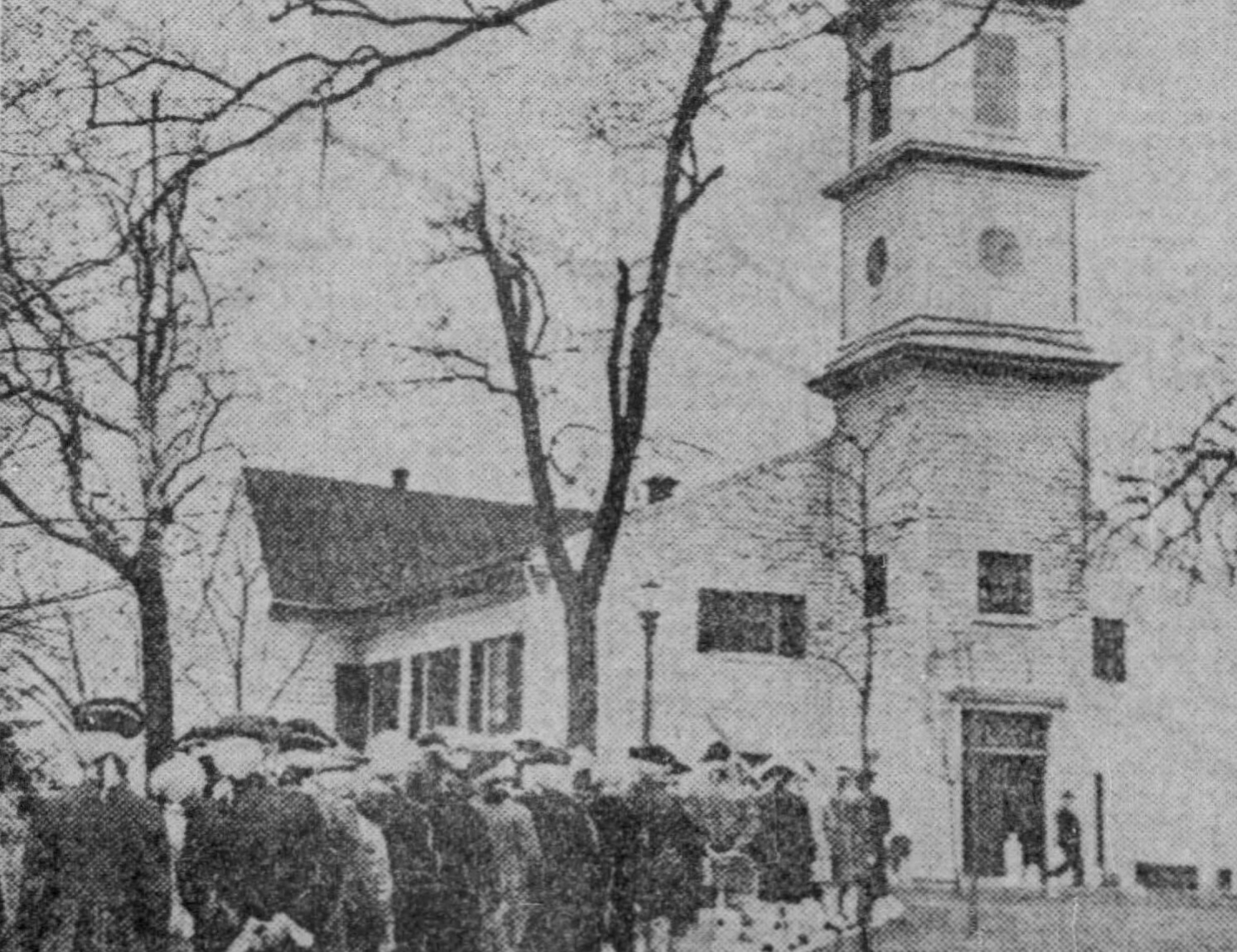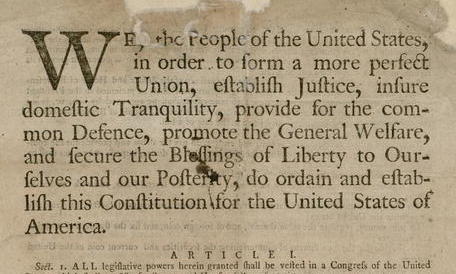
Continuing a Tradition of Civics Excellence
By Mike Sabo With new institutes emerging at colleges and universities in Florida, Ohio, Utah, Tennessee, North Carolina, Texas, and elsewhere, civics education may be

One hundred and fifty-nine years ago this Sunday, a 26-year-old white supremacist and Confederate sympathizer named John Wilkes Booth pointed a .44 caliber derringer pistol at the back of Abraham Lincoln’s head and squeezed the trigger. The 56-year-old president clung to life for nine agonizing hours, expiring the next morning in a cramped room rented by Union veteran Willie Clark.
Lincoln’s death elevated a bigoted Democrat from East Tennessee, Andrew Johnson, to the presidency – and thereby changed the course of Reconstruction. Booth’s bullet pitched a nation still reeling from four years of fratricidal war – a conflict that had snuffed out the lives of nearly three percent of the U.S. population – into a moment of profound precarity.
Pundits are wont to deem our own present moment – wracked by dread, fear, and division at home and abroad – as somehow unprecedented. Historians, however, know that because everything has a history, nothing is truly new.
To be sure, the past, no less than our stormy present, must be understood on its own terms. Context is everything. But Lincoln’s assassination, the first shot of a violent counterrevolution to nullify Union victory and its consequences, offers up a compelling reminder that events whipsaw rather than rush in a single direction.
In the spring of 1865, the victors’ shouts of triumph in the streets faded quickly into wails of deep sadness.
In the ensuing weeks, communities yet trimmed in mourning ribbons welcomed home victorious Union soldiers. Toggling between triumph and tragedy proved profoundly disorienting for soldiers and civilians alike.
Still worse, Americans would soon realize just how narrowly they had escaped an even greater calamity than the one acted out on April 14, 1865. In the wake of the assassination, military and government officials quickly unraveled Booth’s conspiracy to topple the federal government.
Booth and his conspirators plotted to kill not only Abraham Lincoln but also Vice President Johnson, Secretary of State William Henry Seward, and Ulysses S. Grant, the hero of Appomattox and general-in-chief of all U.S. armies. The success of this conspiracy, of course, would have sparked a constitutional crisis since the Presidential Succession Act, establishing the order in which the various cabinet heads acceded to the presidency in the event of the vice-president’s incapacity, was still more than two decades (and yet another presidential assassination) away.
Levi Graybill, a 27-year-old Ohioan who captained a company of African American soldiers on the siege lines of Petersburg, could scarcely believe the news when it reached him on April 16. Only days before, his men had tramped triumphantly through the streets of Richmond, hastily evacuated by a Confederate government sent into exile. In the former rebel capital, Graybill’s soldiers participated in the “grand demonstrations” that cheered President Lincoln upon his arrival.
Now, the men received orders to report to Washington, D.C. to escort the martyred president’s body from the Executive Mansion to the Capitol rotunda. To commemorate this somber errand, Graybill purchased a likeness of the lamented Lincoln and sent it back home. “What a calamity to our nation,” Graybill exclaimed. “I thought the time for such things had passed. Are we drifting into Anarchy?”
Graybill’s fellow Ohioan Milton Barnes entertained similar questions as his regiment, grizzled veterans of the war’s western campaigns, marched north to Nashville, Tennessee. Upon receiving news of Booth’s vile crime, Barnes attempted to compose a letter to his wife, Rhoda, but found his pen uncharacteristically stilled.
“The emotions that crowded upon me were simply indescribable,” the soldier explained. “I had thought that the events of the last four years in our nation’s history were the greatest that had ever crowded themselves into the life of any nation or people, yet it seems we are not yet at an end.”
In recent, prize-winning books, historians Martha Hodes, Caroline E. Janney, and Elizabeth R. Varon have demonstrated how the fog of war still veiled the nation after Appomattox –obscuring any clear-eyed view of the future. Graybill, Barnes, and the men and women of their generation had no idea what the next day would bring, let alone how – or even if – the nation would survive. Just as there had been no manual for waging a civil war in a democratic republic, so too was their no manual for Reconstruction.
In their haste to impose order, our historical narratives too often effaced the messy realities of lived experience.
History can neither prescribe a remedy for what ails us nor assure us of any result. But it can remind us that we are hardly the first Americans to look to the future with a degree of disquietude.
Brian Matthew Jordan was a Pulitzer Prize finalist for his 2015 book “Marching Home: Union Veterans and Their Unending Civil War” and is a member of the Jack Miller Center’s scholarly network.

By Mike Sabo With new institutes emerging at colleges and universities in Florida, Ohio, Utah, Tennessee, North Carolina, Texas, and elsewhere, civics education may be

By John A. Ragosta On March 23rd in 1775, Patrick Henry rose at St. John’s Church in Richmond, Virginia, to urge his countrymen to arm

By Brian Matthew Jordan One hundred and fifty-nine years ago this Sunday, a 26-year-old white supremacist and Confederate sympathizer named John Wilkes Booth pointed a

By Jonathan W. White Historians and the general public regularly rank Abraham Lincoln as America’s greatest president. There is little doubt that he is widely

By Hans Zeiger December 15th marks Bill of Rights Day, which commemorates the 232nd anniversary when the first ten amendments to the U.S. Constitution were

The Patriot Week Foundation achieved its 501(c)(3) status in December 2012 and has moved forward by building a sustainable, nonpartisan organization. Currently staffed with an Operations Manager and Education Consultant, the Patriot Week Foundation will be adding to its complement of talent shortly.
This unique, historically grounded, non-partisan approach is desperately needed in our toxic political environment. In no small measure, the fate of the nation depends on it.
Get in Touch
Fill out the form, our team will get back to you ASAP.